Browse the Collection
Browsing 12 items in our archive
-
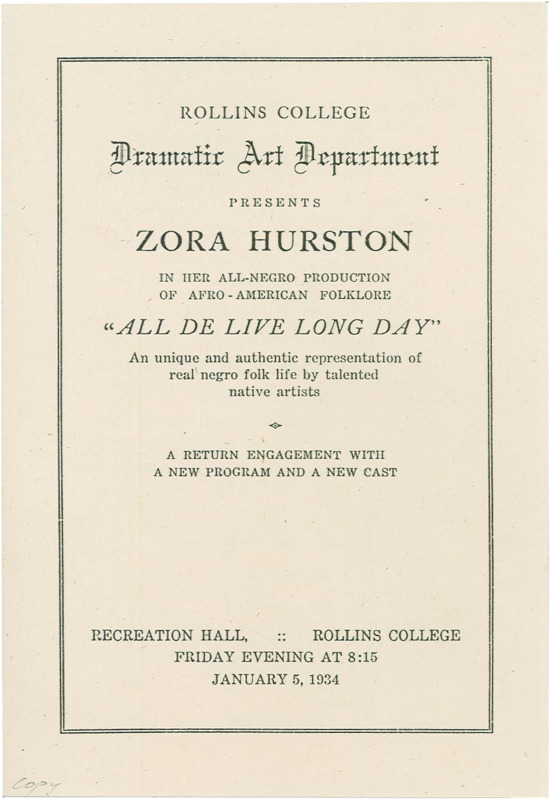 Rollins College | Text
Rollins College | TextAll De Live Long Day Program, 1934
All De Live Long Day, a program of African American folklore, music, and dance, was the second of two productions by Zora Neale Hurston to be performed on the Rollins campus during the 1930s.Learn more -
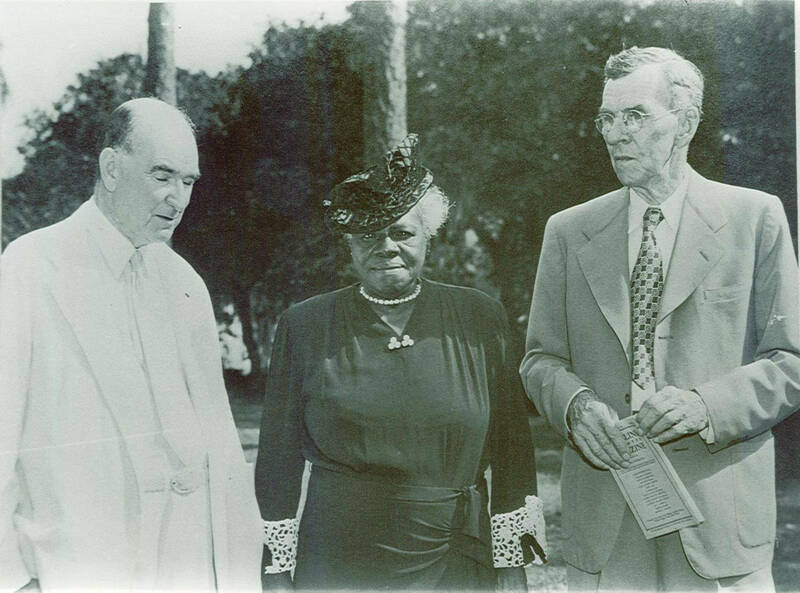 Rollins College | Image
Rollins College | ImageHamilton Holt, Mary McLeod Bethune, and Edwin Osgood Grover
President Hamilton Holt; Mary McLeod Bethune, President Emerita of Bethune-Cookman College; and Professor of Books Edwin Osgood Grover at the 1949 Animated Magazine.Learn more -
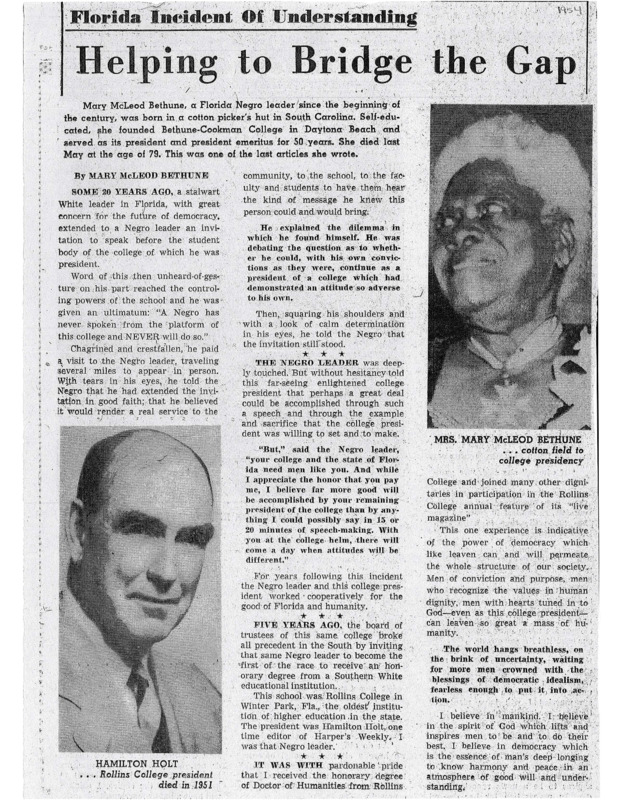 Rollins College | Text
Rollins College | TextHelping to Bridge the Gap
This article, written by Mary McLeod Bethune, discusses her friendship with President Hamilton Holt. It outlines the path of acceptance of African Americans at Rollins College, and her hope for further acceptance and integration in the future. Circa 1955-1956Learn more -
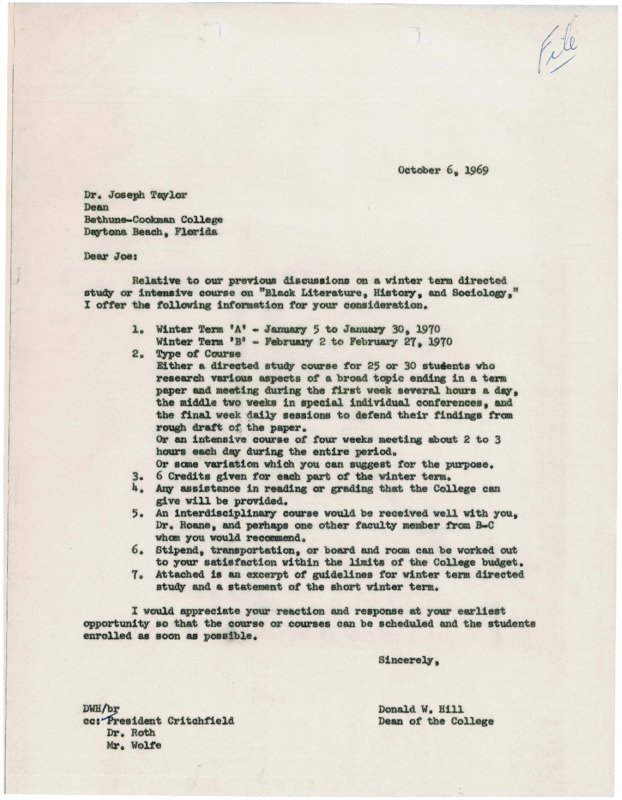 Rollins College | Text
Rollins College | TextLetter from Donald W. Hill to Joseph Taylor, 1969
The administration responds to student demands for more Black studies by creating a winter term course on "Black Literature, History and Sociology." The Dean of Rollins College consulted the Dean of Bethune-Cookman College on the structure and content of the course, demonstrating continued cooperation between the two institutions.Learn more -
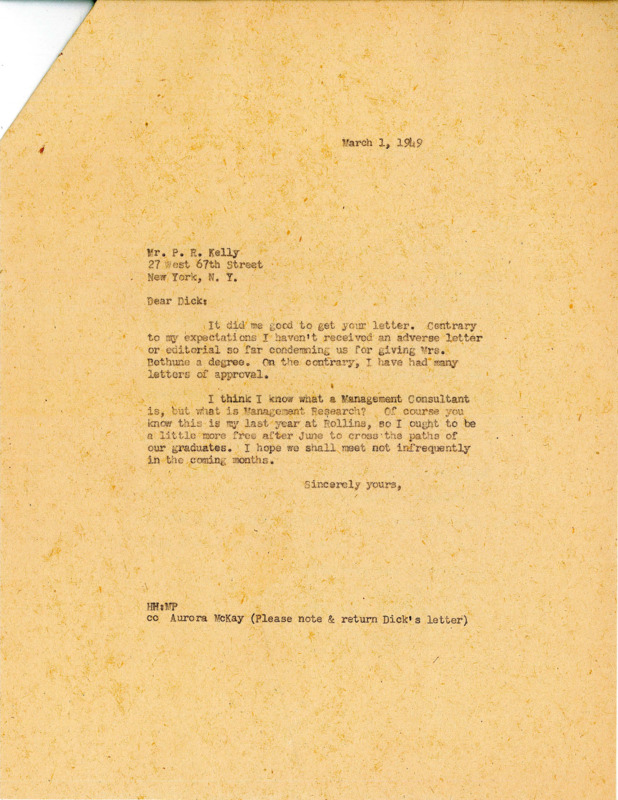 Rollins College | Text
Rollins College | TextLetter from Hamilton Holt to Philip R. Kelly, 1949
President Hamilton Holt writes to alumnus Dick Kelly about public support for awarding an honorary degree to civil rights leader and educator Mary McLeod Bethune.Learn more -
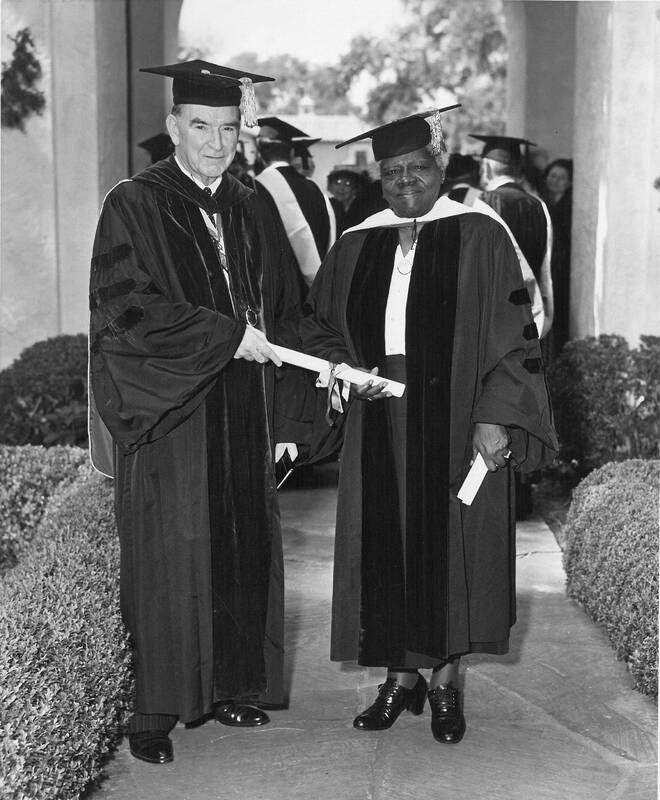 Rollins College | Image
Rollins College | ImageMary McLeod Bethune Receives an Honorary Degree from Rollins, 1949
Hamilton Holt awarding Mary McLeod Bethune, President Emerita of Bethune-Cookman College, with an honorary degree of Doctor of Humanities.This is the first honorary degree given to an African American by an institution of higher education in the South.Learn more -
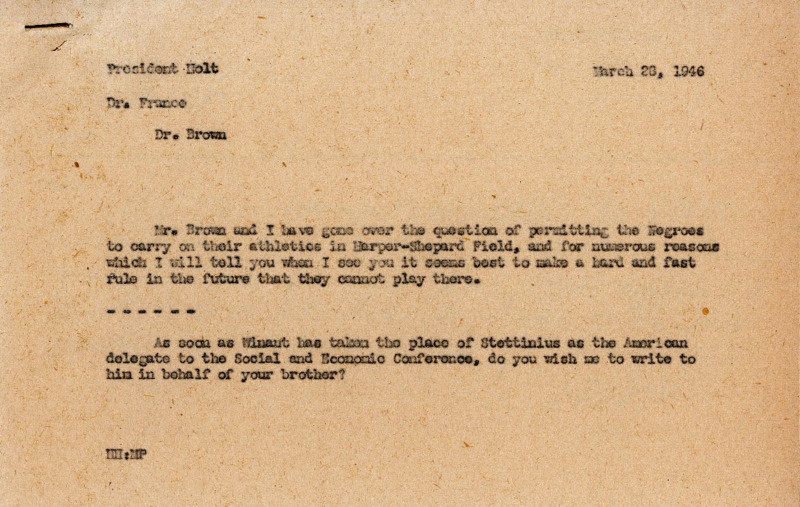 Rollins College | Text
Rollins College | TextMemo from Hamilton Holt to Royal France, 1946
In a memo to Prof. Royal France, President Holt and Treasurer E. T. Brown recommend that no African Americans should be permitted to use the Harper-Shepherd Field while it is not being used by Rollins College. The message shows that the college is trying to determine its position on involvement with local African Americans and their ability to be on Rollins- owned grounds.Learn more -
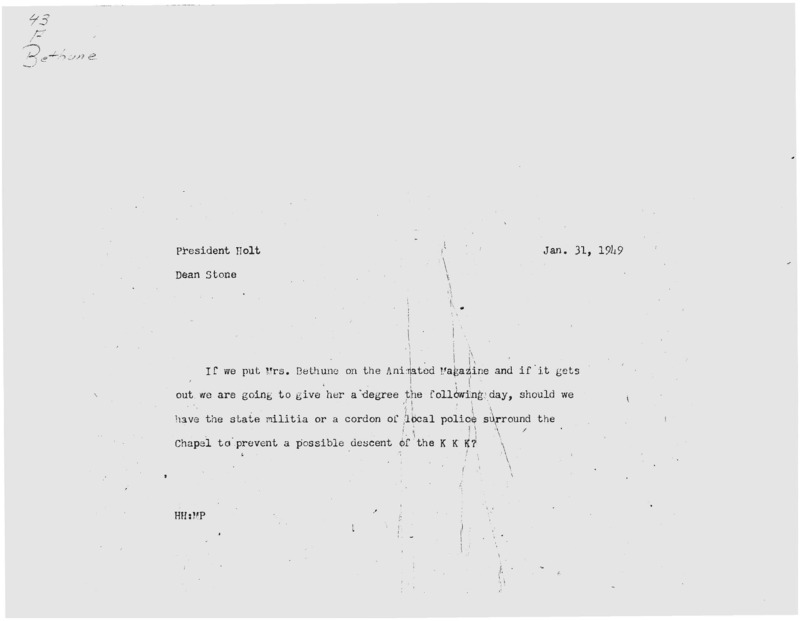 Rollins College | Text
Rollins College | TextMemorandum from Hamilton Holt to Dean Wendell Stone, 1949
Hamilton Holt expresses concern that the announcement of Mary McLeod Bethune's honorary degree would cause protesting and interference from the KKK. His fears proved to be unfounded, but facing violence was a real possibility.Learn more -
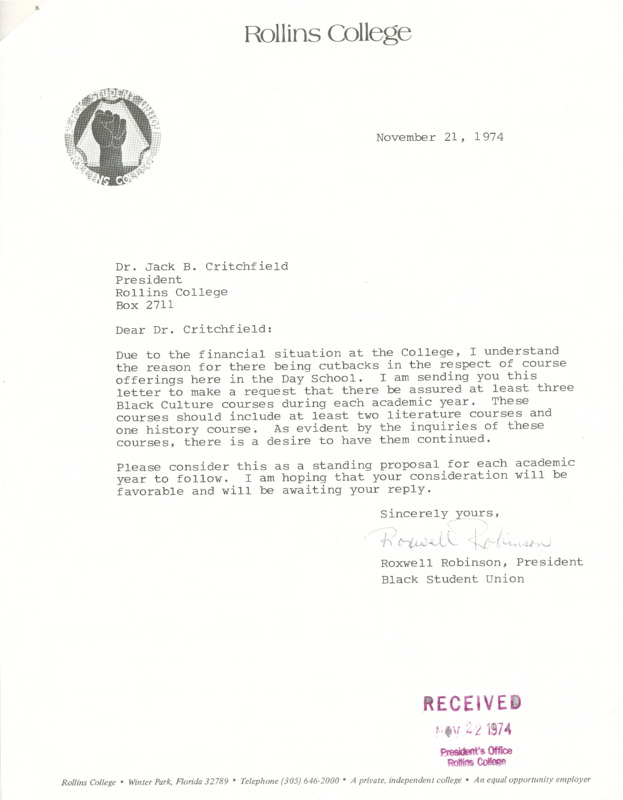 Rollins College | Text
Rollins College | TextRoxwell Robinson and Jack B. Critchfield Correspondence, 1974
Black Student Union President Roxwell Robinson writes to President Jack Critchfield, requesting that the College offer at least three Black Culture courses per academic year, even in the face of financial difficulty. President Critchfield responds that he cannot make a guarantee, but that he and the administration intend to preserve Black Culture courses in the curriculum.Learn more -
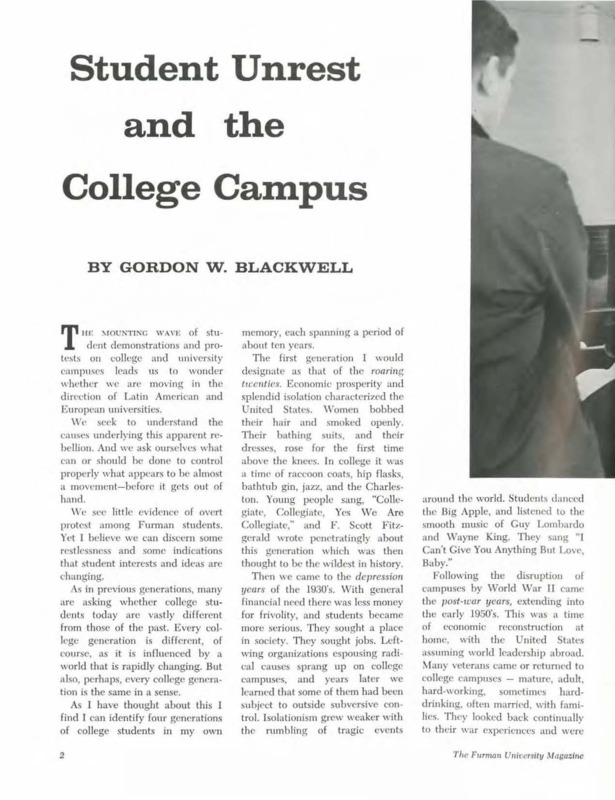 Furman University | Text
Furman University | TextStudent Unrest and the College Campus
An article written by Furman president, Gordon Blackwell, published in Furman Magazine, v. 14 (no. 3), Winter 1966. President Blackwell writes about the history of social change on college campuses thoughout the generations, as well as the current state of student unrest and social revolution at Furman in the 1960's.Learn more -
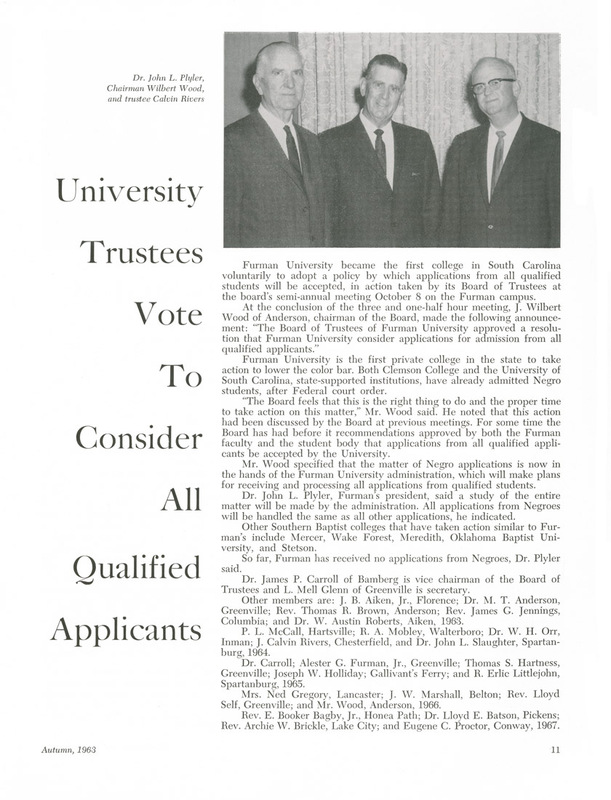 Furman University | Text
Furman University | TextUniversity Trustees Vote to Consider All Qualified Applicants
An article published in Furman Magazine, v. 12 (no. 3), Autumn 1963 about the semi-annual Furman Board of Trustees meeting, held october 8th, 1963, where the Board approved a resolution that Furman University consider applications for admission from all qualified applicants.Learn more -
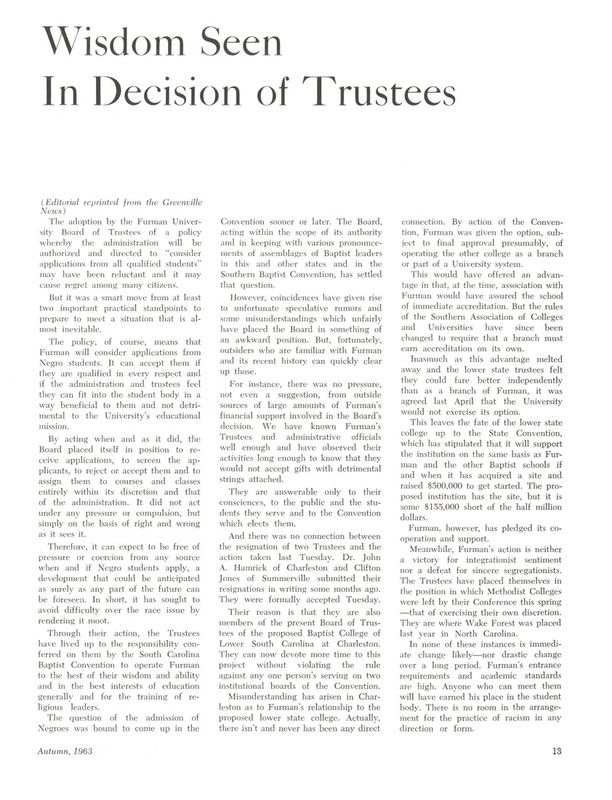 Furman University | Text
Furman University | TextWisdom Seen In Decision of Trustees
Editorial, reprinted from the Greenville News, published in Furman Magazine, v. 12 (no. 3), Autumn 1963. The author explains the wisdom in the Furman University Board of Trustees' adoption of a new policy allowing admission to all qualified students, regardless of race, and explains why it is wise for Southern Baptists, and other church-related colleges to support this decision.Learn more
